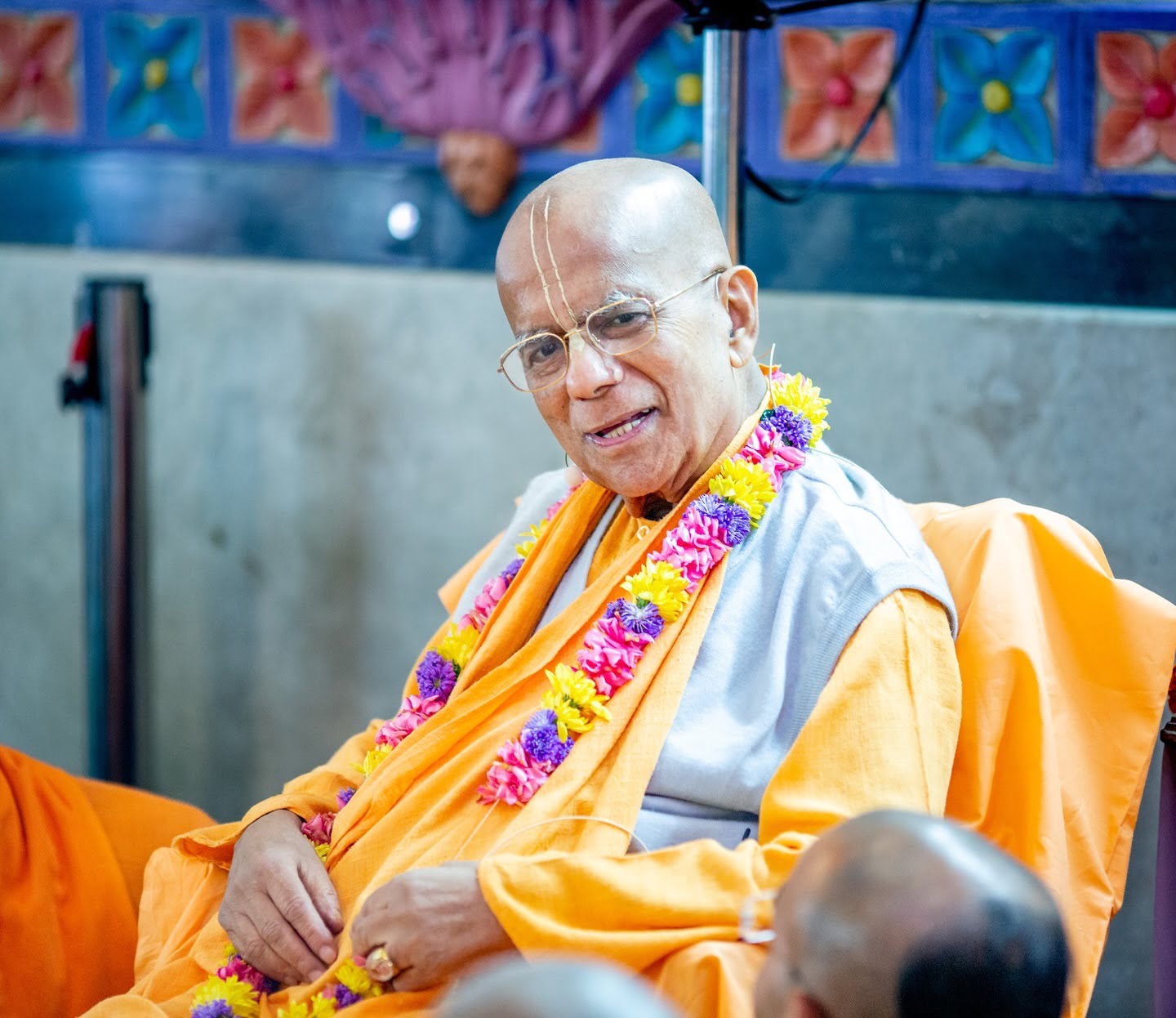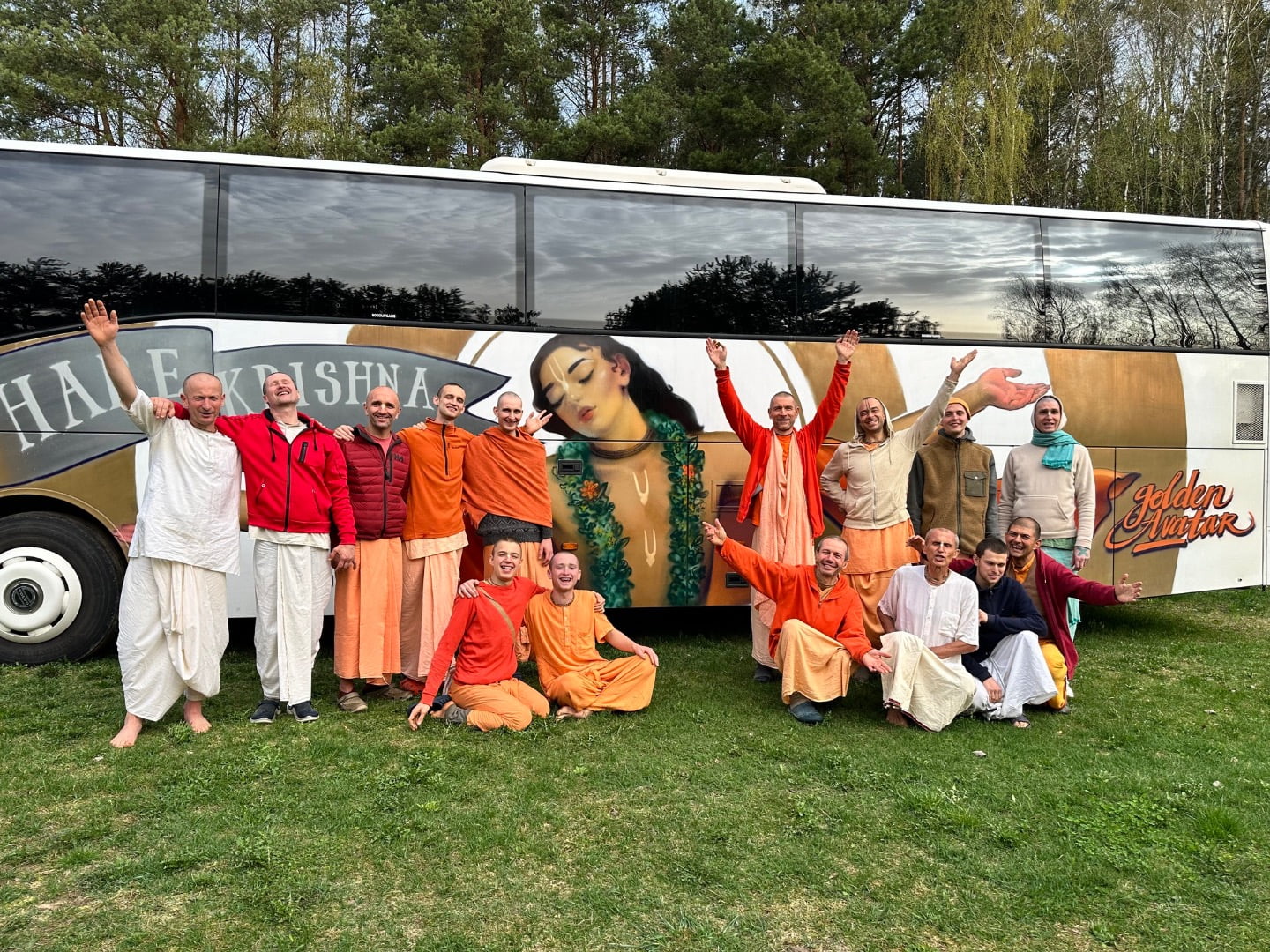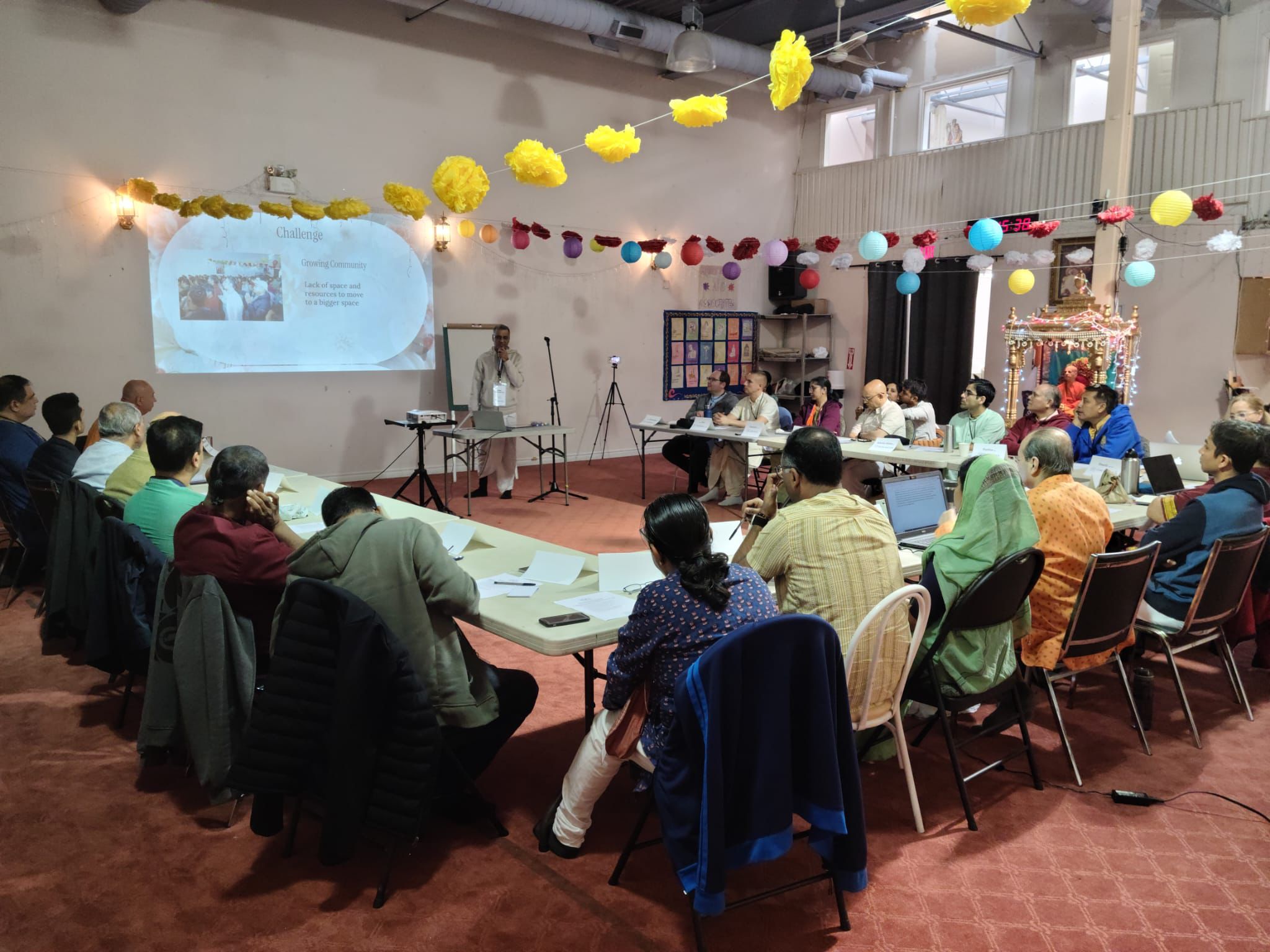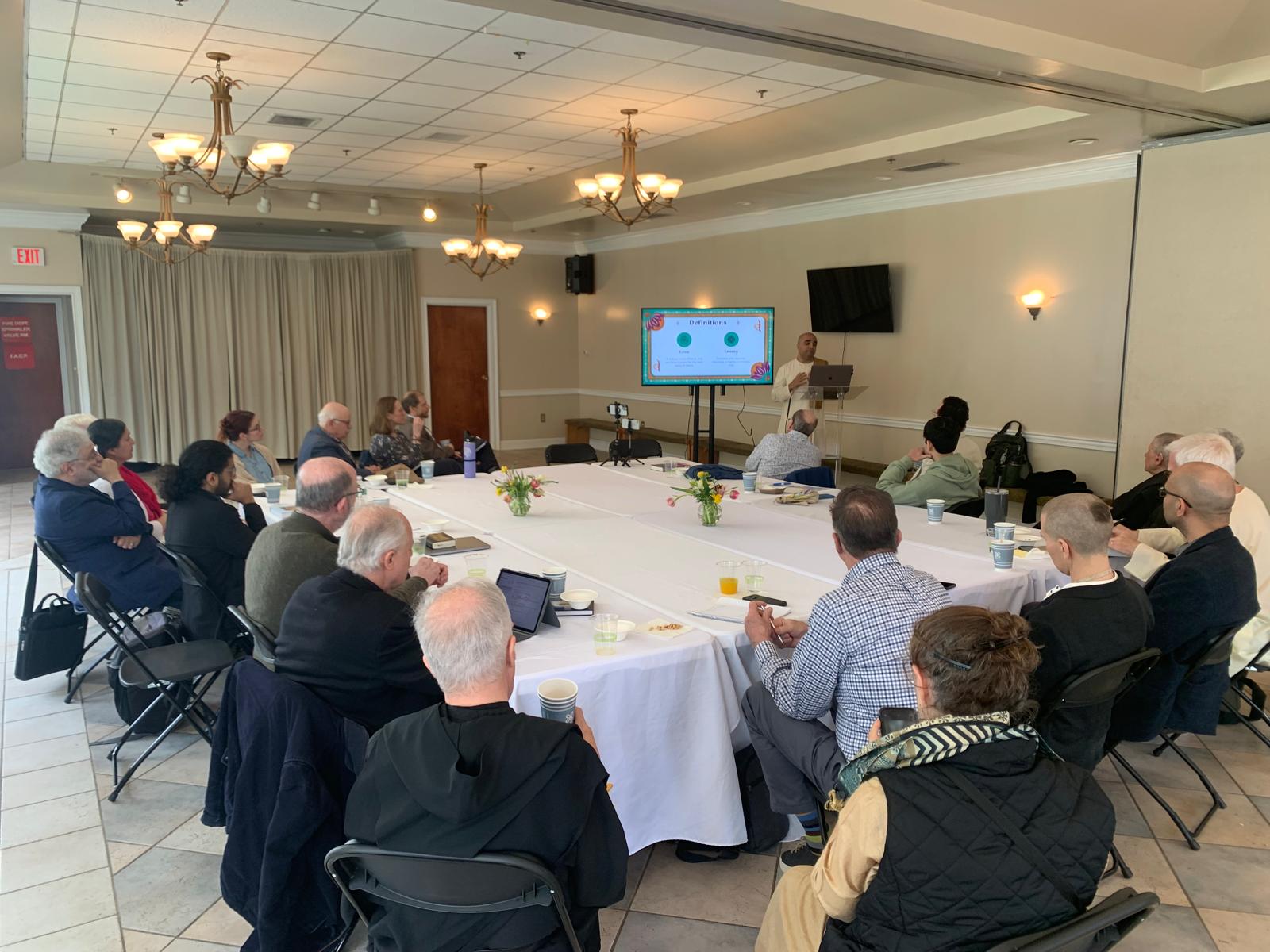Nature’s IQ Film: Smart Animals Challenge Darwin
By Madhava Smullen | Feb 20, 2011
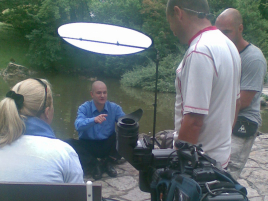
A new documentary film called “Nature’s IQ,” set to premier late this spring, aims to inspire open dialogue about alternatives to Darwin’s Theory of Evolution.
The film is based on a book of the same name written by ISKCON devotees Isvara Krishna Dasa (István Tasi) and Bhagavat-priya Dasa (Balázs Hornyánszky), and first released in Hungary in 2002, where it attracted plenty of media attention, both positive and negative. In 2009, the book was released in the US (by Torchlight), where it was selected as the number two book of the year in the science category by USA Book News’ National “Best Books” Awards.
Nature’s IQ presents one hundred of the most amazing instinctive behaviors in the animal kingdom. Often highly complex, these behaviors are successful only if all elements in the chain are simultaneously present—any go missing, and the behavior is useless. The authors thus logically conclude that such animal conducts probably did not evolve over a long period of time, but appeared as a whole. This is their distinctly anti-Darwin take on life’s origin, backed up by the ancient Vaishnava perspective, which they present as an alternative to the Theory of Evolution.
The film version, directed, produced and written by ISKCON News editor Krishna-lila Dasi (Krisztina Danka), takes a slightly different approach. Its goal is to make people think and challenge them to reconsider what they have been taught to be the truth; but not to hand them the answer. In its second half, the film presents many possible alternatives to the Theory of Evolution rather than just one, none of which leave the realm of science—although they may align with religious teachings. But viewers are left to come to their own conclusions, to research Vaishnavism and decide if it is the answer on their own.
The first half of the film, however, brings the examples of smart animals who challenge Darwin from the book to life. Viewers will see, for instance, the strange case of the ferocious Coral Grouper, which eats just about every species of small fish except for the Cleaner Wrasse. This fish can pick skin cells off the Grouper and eat them without being bothered, and can even swim straight into its mouth, pick its razor-sharp teeth, and dance out again without being eaten.

“It’s very hard to imagine any gradual evolution of this behavior,” Krishna-lila says. “If the Cleaner Wrasse had at any point decided to take the chance of being eaten alive, his species would not have survived.”
Another amazing example is the Mallee fowl, which lives only in Australia, in a semi-desert climate with extremely hot days and cold nights. This pheasant-like bird digs its nest in the earth, fills it with dry leaves, and caps it with clay, leaving a small hole at the top to let rain in. Once the rain falls, the Mallee fills the hole in, and the water makes the leaves rot, causing them to generate heat. The male is able to measure the heat by sinking his beak into the earth, and when the temperature is at exactly 34 degrees Celsius, the female comes and lays her eggs. Meanwhile, the male adds and removes dirt from the top of the nest to control the temperature, never allowing it to fluctuate more than one degree.
Finally, when the eggs hatch, the newborn Mallee fowls dig themselves out of the dense pile of earth and leaves, and immediately depart—they never see their parents. Yet when the time comes, they know exactly how to build this amazing nest.
“Each one of these incredible elements—the carefully maintained exact temperature, the anatomical features on the male’s beak that allow it to gauge the temperature, the little birds knowing how to dig themselves out, and the knowledge of how to build their own nest later without any training—all of these have to be perfectly in place in order for the species to survive,” Krishna-lila says. “And they have to be there all at once.”
Each of these examples are carefully analyzed by a host of experts in the film, discussing from different angles whether or not such behaviors could have evolved.

There’s zoologist and evolutionary biologist Stanley Salthe, and Forbidden Archeology author Michael Cremo (Drutakarma Dasa) in the USA. From Hungary, there’s physicist Ferenc Jeszenszky, as well as Nature’s IQ authors Isvara Krishna Dasa—a cultural anthropologist—and Bhagavat-priya Dasa, a bio-engineer. From the UK, there’s Ayush Goyal, a biomedical researcher at Oxford University. And there are many more.
“One of the strengths of the film is that the contributors who question the validity of Darwin’s Theory don’t voice their doubts on religious grounds,” Krishna-lila says. “Their criticism is based soley on scientific criteria. So it can’t be said that only creationists find fault with Evolution.”
For this reason, Krishna-lila feels that many different people will find the film interesting—spiritualists, those already nursing some doubts about Darwin’s Theory of Evolution but, and even those who simply love animals, and want to learn more about them.
Krishna-lila—who was a natural choice for director of the film after working with author Isvara Krishna for many years on ISKCON Hungary’s communications team, is fascinated by the subject herself.
“Although I’m not a biologist—my PhD is in literature and philosophy—I was fascinated by what could be the consequences of this book, and now, the film,” she says. “Because I had studied how the religious worldview was replaced after enlightment and the industrial revolution, how there was a need for something like the Darwinian Theory of Evolution, and how it became the mainstream. And I feel that now, there is also a similar need for a paradigm change, as cracks are beginning to show in the Theory of Evolution.”

Krishna-lila hopes that her film will reach even more people than the book, and provoke intelligent viewers to consider—or at least be open to—alternatives to Evolution.
“People don’t read as much these days, but everyone watches TV and movies,” she says. “So we had discussed making a film to reach a larger audience for a long time. And when an opportunity came to recieve an ISKCON grant, we applied and got it. We also got a lot of support from companies and organizations, while many people worked on the project for free, because it inspired them.”
Krishna-lila hasn’t always been a film-maker: in fact, she stumbled upon it during her fifteen-year stint as PR person for ISKCON Hungary. In regular contact with the media, she would often arrange for TV camera crews to shoot at Hungary’s Krishna Valley community and even overseas in India and Sri Lanka. She became more and more involved in the documentary-making progress, even beginning to write scripts and help in the editing process. Wanting to boost her credibility with professional qualifications, she studied at and received a certificate from NYU Film School in New York.
She went on to be the writer-producer of twenty-five documentaries, all connected to different elements of spirituality, Krishna consciousness or Indian culture. Most were broadcast on Hungary’s national PBS television channel, while many others were broadcast internationally.
Because of her experience, Krishna-lila didn’t have a difficult time amassing a talented team for the Nature’s IQ film. She began pre-production in April 2010, and by May, she was ready with a crew of twenty—including the book’s author Isvara Krishna Dasa and Archeology expert Drutakarma Dasa, both of whom are interviewed in the film and serve as associate producers.

Krishna-lila’s husband, NYU screenwriting teacher and Hollywood story analyst Mark DeGasperi, was also on board as a producer, while many other professionals whom Krishna-lila had worked with on earlier films joined the team as creative consultants, sound and 3D animation technicians, and cameramen.
“It’s an extremely dedicated team,” says Krishna-lila. “Isvara Krishna has been of tremendous help from the very beginning. As well as one of our cameramen and a good friend of the devotees, Denes Doboveczki. He once fell from a huge rock and broke his leg while filming a series of documentaries in South India. With no hospitals around, we didn’t know his leg was broken, and he finished shooting all six films before returning home to Hungary and spending a month in the hospital to recuperate.”
While no hardships of this magnitude plagued the filming of Nature’s IQ, the project wasn’t without its difficulties.
Shooting was spread out over two months in summer 2010, and jumped from locations in Hungary to the US and back. Some days were not easy for Krishna-lila, as she was seven and eight months pregnant throughout the shoot; yet thanks to a determined and extremely supportive crew, any hurdles were quite easily overcome.
Animal footage of monkeys, pelicans, snapping turtles, clown fish, and various butterflies was shot at the Bronx Zoo in New York and the Budapest Zoo in Hungary, while some animals such as bees and migratory birds were filmed in the Hungarian countryside.
“Every step of making a film is carefully structured and pre-planned, but it’s a little hard to predict how animals will behave!” Krishna-lila says. “One day we planned to film the honey bees at the Krishna Valley farm community flying out to the flower field, and then returning to their hive and communicating to the other bees through their movements how to find it. But when we got there, it started pouring rain, and those bees just didn’t want to come out! Those are some of the challenges you face when nature is your actor.”

Another challenge was gathering all the amazing footage of dozens of smart animals around the world on a relatively low budget.
“We couldn’t afford to fly to some far away country for just one minute of film,” says Krishna-lila. But luckily, there are many agencies from which we could purchase fantastic high-definition footage of animals. Sometimes these were for whole scenes, or sometimes we would purchase a difficult shot we couldn’t capture ourselves and insert it neatly into the scene. For example, we could film kangaroos at the zoo, but not a close-up of the tiny newborn kangaroo climbing up into its mother’s pouch. So we purchased high-definition footage of that and inserted it.”
Some footage is especially rare and expensive to purchase, such as that of the Australian Mallee Fowl. But Krishna-lila hopes that with some financial help from persons inspired by the project, they will be able to purchase these rare clips and complete the film.
In fact, although the documentary was originally set to be half an hour long, the team has already collected so much excellent material that it has expanded to double the length, to become a full sixty-minute film.
With several weeks worth of work left on the film, the trailer at www.naturesiqfilm.com is already generating plenty of interest. Nature’s IQ will be premiered in late May with a series of special screenings on the East Coast of the US, at Universities such as NYU and Boston University, organizations such as the United Nations.

These events will be accompanied by question and answer sessions with some of the contributors to the film, so that people interested in the subject will be able to enter into dialogue with them. The screenings will run for three or four weeks, and may also be held on the West Coast and in Europe if successful.
About two months following the run of special events, the series will be shown on US and possibly international television stations.
“We still have to negotiate with TV stations about this,” says Krishna-lila. “But we do hope to have an international release as well, since we have a global audience in mind, and our contributors are from all over—the US, Europe, and the UK.”
The film is also expected to be released on DVD and by iTunes download following the TV run.
“I know we’ll receive a lot of criticism, because it’s a controversial topic,” Krishna-lila says. “But I also hope we’ll help to break the taboo of speaking about this subject. These days, if a scientist writes a paper that doesn’t agree with Darwinism, there’s huge social pressure on him. But I’m sure that there are a lot of people out there who are open to considering alternative explanations. So let’s talk about them openly—let’s allow dialogue on this topic at universities, in books, on TV, in the public arena.”
While the Theory of Evolution has been questioned before, Nature’s IQ offers a completely new take to the debate, with its fascinating look at complex animal behaviors.
And with her company Karuna Productions, Krishna-lila hopes to continue offering unique documentaries that provide food for thought.
“Our aim is to organize a global network of ISKCON devotees to produce thoughtful and spiritual content for the mainstream media,” she says. “I know for a fact, that a lot of TV channels are looking for good content; and if we can produce content about our message and the values we represent that is top-notch quality, they are very open to broadcasting it.”
For more information about Nature’s IQ: The Film, to be notified about its special events or releases, or to help purchase the rare footage needed to complete it, please visit www.naturesiqfilm.com. To find out more about Karuna Productions, please visit www.karunaproductions.com
To watch the trailer click here: http://news.iskcon.org/node/3450/2011-02-19/natures_iq_smart_animals_challenge_darwin_a_film_trailer






